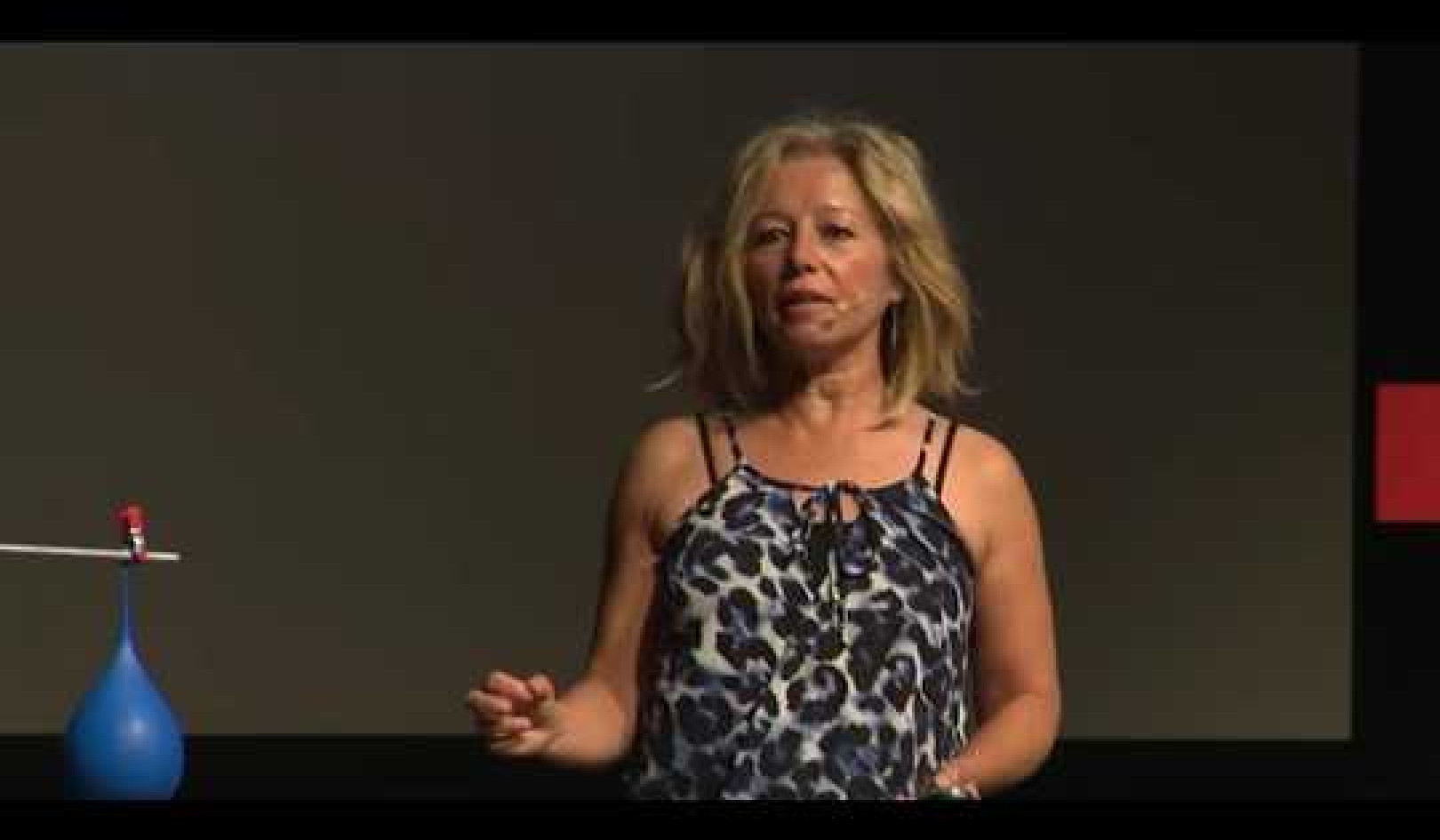
Image by Alexas_Fotos
We are in the midst of an extraordinary upsurge of interest in the realm of the Spirit. Tens of millions of people in advanced industrial societies live at a level of material well-being that far surpasses the luxuries and comforts available to kings, queens, and nobles just a few hundred years ago. But many of these are in the vanguard of those who seek a new spiritual reality.
Emancipatory Spirituality is emerging on college campuses and in churches; at ashrams, synagogues, and mosques; in poetry and fiction, in movies and books, in community centers, and in zines and websites; and in little acts of loving kindness.
But, and this is a big "but", most of the people involved do not yet recognize themselves as part of some larger movement.
I remember giving a talk about Emancipatory Spirituality at a Methodist church in Kansas. My message was greeted with great enthusiasm, but afterwards many people told me: "We here in Kansas believe that there ought to be a new bottom line, but we know very well from watching television and reading the newspapers that people on the coasts are so selfish and narcissistic they'd never support a more loving world -- in fact, they'd just laugh at our foolishness and think of us as country bumpkins for believing in love. So how can we ever believe that anything will change?"
Now, I've been in so many rooms with people in New York; Los Angeles; San Francisco; Seattle; Portland; Miami; Boston; Philadelphia; Washington, D.C.; Atlanta; and so many other places -- and in each place the people in the room thought they were the only ones who shared all this idealism -- because the media has done such a terrific job of making us all invisible to each other. The people on the coasts considered themselves different from the "Middle America" people I met in Kansas. In fact, they have very similar needs and interests. Yet the media makes us invisible to each other.
So, how will we become visible?
There are a wide variety of spiritual projects emerging today that will help in this process. Some of these projects are detailed in books like Spiritual Politics, by Corinne McLaughlin and Gordon Davidson; Conscious Evolution, by Barbara Marx Hubbard; and in magazines like Sojourners (which comes from the Christian Evangelical world), TIKKUN (the magazine I edit), and Yes (a journal edited by David Korten). Even this book, Spirit Matters, could play some role in making people more visible to each other. Dozens of important books published each year play their part in making it easier for people to "get" that something is happening beyond their own inner lives.
Don't underestimate the power of putting this and other books in the hands of people you care about -- or the impact of people getting a spiritually oriented magazine on a regular basis. These little concrete manifestations of spiritual interest can provide a massive dose of hopefulness for people who thought they already knew all the idealistic people in the world, and that there weren't very many of them.
But it will take a lot more than books or magazines. We need a social movement committed to spiritual transformation that can publicly champion a new bottom line of love and caring. As such a movement grows, it can shake us loose from our depressive resignation about the impossibility of what we yearn for.
Such a movement is already developing, though it has not yet reached a level of public visibility that can protect it from being dismissed as flaky, naive, or irrelevant. It will take many years, perhaps even decades, before it reaches a "critical mass" and its ideas are allowed serious consideration by the gatekeepers of public discourse.
We will reach that critical mass as more people begin to struggle for a new bottom line in society. In our economy, our legal structures, our medical system, our education, and in every other sphere of our lives people will increasingly challenge the ethos of selfishness and materialism in the name of what I call Emancipatory Spirituality.
That transformation will be aided as more and more people engage in a regular daily spiritual practice. The deeper the spiritual practice, the less they will be willing to tolerate a society that functions on the assumptions of competitiveness and looking out for number one.
Eventually, the millions of people who already desire a new bottom line will become more visible to each other. The more they realize that they are not alone, the more they will feel empowered to publicly assert their commitment to an Emancipatory Spirituality.
It will happen as more and more people engage in acts of loving kindness toward each other and in joyful celebration of the grandeur of the universe. The more love and celebration around us, the more awe and wonder, the harder it will be to sustain the old ways of being that are considered "common sense" today.
What Is Emancipatory Spirituality?
Some of what is central to Emancipatory Spirituality links it to older forms of spiritual life, while other aspects are quite new and unique. Here is my description of this emerging spiritual orientation and practice:
1. Emancipatory Spirituality means a celebration of the wonder of the universe -- and the cultivation of our capacities for awe and radical amazement at all that is. It involves a deep recognition of the Unity of All Being and a humble recognition of ourselves as one small but valuable part of the totality, and an ability to see our endeavors from the perspective of the totality.
This way of seeing is not the same as a detached aesthetic appreciation of the universe. Awe and radical amazement elicit a complete involvement of one's whole self, moments of being overwhelmed, having one's breath taken away, being captivated and excited by the marvel of all that is.
To see in this way is to recognize other human beings, the earth, and the entire universe as sacred. We do not orient toward them primarily in terms of how they can be of use to our purposes, but in terms of their intrinsic value and our responsibility toward them. We feel ourselves drawn to them, concerned about their well-being, desiring to promote their best interests, and grateful for the ways we receive nurturance from them. We do not see ourselves as dominating them, but as in relationship to them, involved in their well-being, and a beneficiary of their goodness.
2. Emancipatory Spirituality means cultivating our capacity to see each other as ends, not means to some other end. Every single person on the planet is to be treated as valuable and deserving of love, respect, and solidarity (in secular language) or as created in the image of God (in religious language).
This is not merely a matter of holding the correct opinion. Emancipatory Spirituality encourages an inner spiritual practice aimed at shaping our inner selves to respond to others with empathy, compassion, great feelings of love, and an unmediated desire to enhance their well-being and to ensure that they are fully able to actualize their capacities as loving, free, self-defining, creative, intelligent, and joyous beings.
If we have these feelings, we will also feel a passionate commitment to democratic forms of government and democratic economic decision making, as well as to the separate development of each individual. We will support free speech, freedom of assembly, tolerance, and respect for difference, and we will resist every attempt to coercively impose a single right way to be, whether that comes from government, from the pressures of the market and advertising, or from communities of the self-righteous. There may be many different forms for achieving substantive democracy, but they must all function in ways that affirm the sanctity of each individual.
3. Emancipatory Spirituality affirms the equal worth of every human being, regardless of race, gender, sexual orientation, nationality, religion, cultural ties, or anything else that has been used to deny equality of respect.
4. Emancipatory Spirituality seeks the healing and transformation of the world, so that all of our public institutions cooperate to enhance peace, tolerance, cooperation, mutual respect, ecological sanity, social justice, and celebration of the grandeur of the universe.
To achieve and sustain this transformation, Emancipatory Spirituality encourages people to work together in social and political movements, and to fill those movements with a powerful spiritual practice that includes meditation, celebration of the universe, loving care for each other, love for those who do not share the movement's particular philosophy or transformative strategy, and a genuine recognition that its goals cannot be achieved by means that are not as holy as its ends. It is committed to non-violence as a strategy and as a way of life.
5. Emancipatory Spirituality means cultivating our capacity to transcend our individual egos so that we can experience connection to the Oneness of All Being.
To transcend the ego does not mean to permanently eliminate it, but rather to put ego concerns in balance. It takes a strong ego to be able to transcend ego without allowing one's own intellect or good judgment to be subordinated to that of a guru or a charismatic leader. People with strong egos can follow a teacher or leader without losing their own integrity and freedom, because they retain their own independent judgment and freely decide to follow a particular path. Those with weaker egos will sometimes find themselves giving up too much of themselves, feeling resentful, and ultimately engaging in a dialectic of anti-leadership that can be destructive to spiritual communities. So, Emancipatory Spirituality supports the development of strong egos and the spiritual practice of transcending those egos.
6. Emancipatory Spirituality means developing mindfulness, a form of alert attention to each act and experience, so that we are alive to everything we encounter in ourselves, in each other and in the world -- and so we can experience the potential sanctity of every aspect of our lives. This mindfulness requires a deep openness to the truth of what is and a capacity to see the potential for transformation in all that is.
7. Emancipatory Spirituality encourages us to develop rich inner lives connected to Spirit and to sustain that connection even through periods of adversity and pain. It is not a "feel good" spirituality that calls attention only to that which is pleasing in the world, but rather a spirituality that asks us to attend to all that is, to be conscious of the pain and suffering of humanity, and to overcome our tendencies to "space out" when something seems disagreeable or frightening. There is great suffering in life, and a grounded spiritual practice does not seek to deny the reality of suffering but to help us be with it, to distinguish the parts that are changeable from those that are not. While acting to change what we can, we also learn to accept what we cannot change without denial, without fleeing into pseudo-consolations or partial distractions, without closing our minds or our hearts.
Only through fully experiencing our own emotions can we free ourselves from our fears enough to be truly conscious of the needs of others. And it is through this alert attentiveness that we can begin to recognize our own ego distortions and connect to the totality and unity of all.
To achieve this ability to be present to our own experience, we need to overcome blocks from the past, including anger and resentments against parents. Spiritual life requires cultivating a capacity to forgive those who have hurt us in the past, starting with compassion for our own parents.
8. Emancipatory Spirituality means enhancing our capacity to play, to experience joy and pleasure, to honor our emotions and the emotions of others, to educate the next generation with love and compassion, and to experience solitude and silence. It means building communities and social practices that encourage and foster these capacities.
9. Emancipatory Spirituality encourages non-goal-directed aesthetic creativity in music, dance, painting, poetry, theater, fiction, video, and in any other form of human artistic expression.
Rejecting censorship, Emancipatory Spirituality embraces the notion of "all power to the imagination" and integrates that understanding into the framework of a loving, respectful, and awe-filled universe.
10. Affirming pleasure and sexuality while rejecting all attempts to separate Spirit from its embeddedness in body, Emancipatory Spirituality promotes a sexuality that is integrated with a sense of sanctity and reverence for others, a sexuality that permeates and rejuvenates us, a sexuality that enhances loving commitments and trust between people.
To fully experience pleasure and joy, we must also be open to our anger and our hurt. Emancipatory Spirituality rejects a kind of airy-headed spirituality that encourages people to see everything as happy-making and wonderful, and to avoid anger and confrontation with evil and suffering in the world. There is an ongoing function for righteous indignation and rage at injustice and these feelings are an important element in Emancipatory Spirituality to the extent that they lead to active involvement in healing and transforming the world.
11. Emancipatory Spirituality means encouraging an overwhelming feeling of love toward others and a respectful caring for their needs, without forgetting our own needs.
Loving others involves, in part, a desire to help each other leave the goal-directed consciousness required by the struggle for survival and to encourage each other to spend more energy in the world of playfulness and joyful celebration. It means encouraging others to take pleasure in some of life's greatest joys:
* (a) connecting with others and fully recognizing them in all their complexity,
* (b) deepening our understanding of the complicated and multi-layered nature of reality,
* (c) sharing love without fear that there won't be enough to go around,
* (d) rejoicing in the well-being of others,
* (e) generously sharing our talents and our material resources with others
* (f) sharing responsibility for the raising of children and the care of elders in ways that affirm their self-worth and preciousness,
* (g) respecting individual differences and alternative life paths,
* (h) respecting privacy and the desire of people to not always be part of the group and to not always participate in whatever others are doing.
Emancipatory Spirituality also supports healing that enables us to be fully loving, caring, trusting, trustworthy, gentle, creative, attentive, intellectually developed, and bursting with erotic life-energy, curiosity, compassion, wisdom, and joy. So, it encourages every form of spiritual counseling, spiritually sensitive psychotherapy, and family counseling as well as any transformative process that actually leads to this kind of spiritual and emotional healing.
12. Emancipatory Spirituality promotes respect and care for the well-being of the entire universe, a desire to live ecologically sustainable lives and to create human societies that are environmentally sustainable and that embody respect for all other life forms. (This respect does not mean accepting every life form as equally valuable. For example, it must allow us to engage in research to prevent or combat cancer or heart disease, no matter how "natural" they may be.)
Emancipatory Spirituality encourages us to support cooperation and morally sound, ecologically sustainable planning on a global, national, regional, and local basis. We need to steward the universe's resources, and to do so with humility and reverence for all creation.
13. Emancipatory Spirituality supports the deepening of our intellectual capacities so they can be directed toward ensuring the survival and spiritual flourishing of the human race and our integration into the universe with humility, ecological sensitivity, and a realistic understanding of the limits of our knowledge and our wisdom.
Emancipatory Spirituality acknowledges the importance of science and technology, and of the kind of rational thinking associated with Western philosophies and systems of logic and mathematics. It honors these.
But Emancipatory Spirituality also sees the limits of science and recognizes other forms of knowledge. It treasures the wisdom that emerges from the mystical, religious, aesthetic, and moral traditions of the human race, as well as the wisdom that comes to us in intuitive and inner ways. It recognizes the wisdom of women. It acknowledges that there are many levels of reality that we as humans only dimly understand, and it encourages us both to respect our limitations and to seek ways to expand our capacities to receive information from the universe and to be open to God's voice in whatever ways it can be received.
Emancipatory Spirituality reveres learning and discourse as sources of pleasure and joy and as activities that can be playful and rewarding for their own sake, not only to achieve some higher individual or communal goal.
14. Emancipatory Spirituality seeks an integration of our many capacities and strengths, both on the individual and global levels, without insisting that our unique traditions be subservient to some new universal view of "the single right way". Integrating the different forms of wisdom is not a call to abandon uniqueness, but to share and integrate what we each have to contribute with the wisdom of others.
15. Emancipatory Spirituality supports "changing the bottom line" of society from an ethos of selfishness and materialism to an ethos of love and caring. Emancipatory Spirituality seeks a fundamental redefinition of concepts like rationality, productivity, and efficiency so that they include love, solidarity with others, awe and wonder at the universe, and ethical, spiritual, and ecological sensitivity.
If any economic, political, or social system cannot accommodate to this "new bottom line", it needs to be transformed in ways that make this set of concerns seem realistic rather than utopian. That the world can be based on love and awe -- not just in our private lives but in the way we interact with each other and build our economic and social institutions -- is a central tenet of Emancipatory Spirituality.
16. Emancipatory Spirituality encourages the spiritual evolution of the human race toward higher forms of knowing, loving, sharing, and rejoicing. This openness to evolving higher levels of consciousness and connection to the Unity of All Being involves a willingness to let go of old ways of thinking and organizing our lives so that we can further evolve as conscious and loving beings. It encourages us to move beyond the smallness of our vision and to allow ourselves to be guided by Spirit, approaching our world with openheartedness, rejoicing in serving God's plan, radiating blessings and health to all whom we encounter, and allowing ourselves to sink into a paradoxical state of relaxed trust and animated engagement, a sense of surrender into a greater awareness, and basking in the luminous lovelight of the One.
The Danger of Reactionary Spirituality
Reactionary spirituality can be easily identified by three characteristics:
It usually asserts that one group has the authoritative account of truth. For example, a group can claim that it received God's revelation first and that it therefore has the exclusive ability to correctly interpret God's will. Or it can claim that it has some special current tie to God or to Spirit that makes its understanding superior to that of everyone else. Or it can claim that people of a certain kind (men, women, white people, people who share some physical or emotional attribute) are innately more attuned to spiritual truth than others.
However, the counter-cultural view, now sometimes finding support in New Age spiritual circles, that equality requires that we give equal value to the ideas of every human being, is deeply mistaken. There is nothing elitist or harmful in believing that some ideas are better than other ideas. Nor is it intrinsically elitist or hurtful to assert that some people came to those ideas first and deserve to be honored for having played a vanguard role in delivering good ideas to the rest of the human race.
What becomes elitist is the belief that certain truths can only come through some privileged group of people, or that one group has an exclusive right to interpret sacred ideas or has an exclusive access to Spirit.
I have no trouble thinking that certain people are more highly developed in their aesthetic capacities, physical prowess, sexual aliveness, intellectual sophistication, emotional sensitivity, spiritual development, or any other valued traits -- and believing that I can learn more from them in their field than I could from others. What I do find offensive is when these same capacities are attributed to a subgroup, be they priests, gurus, teachers, or whatever, without regard to each practitioner's personal development or message. So, when someone tells me that a given person is spiritually elevated because he or she was born into a particular family, group, or social status, or because she or he has been designated a teacher of a particular tradition, I want to know more about the individual person before I'm willing to accept such claims.
Reactionary spirituality rejects the claims of science and rational inquiry, rather than recognizing some legitimate sphere in which science and rational inquiry should have a definitive say.
Reactionary spirituality may critique the values of capital or those of the ruling elites of a given society, but it is not willing to support the democratization of the society, the economy, or the political order. Usually it finds itself backing other elites who are no more democratic than the ones it initially opposed. It talks about social justice, but it is unwilling to struggle for transformation of our economic and political system in ways that would promote that social justice. It conforms to the values of the societies in which it operates rather than actually seeking to build social and economic institutions that value love and caring above money and power.
The usual outcome of this combination of characteristics is this: to glorify some particular part of the human race and to denigrate some "other". It is this disdain for the Other that is the most unacceptable element in reactionary forms of spirituality.
Demeaning the Other runs counter to the highest goal of Spirit. It undermines the belief in the Unity of All Being and the possibility of recognizing every other human being as equally created in the image of God. For that reason, any alliance with reactionary spiritual circles must be seen as merely temporary and as morally problematic.
Reprinted with permission of Walsch Books,
an imprint of Hampton Roads Publishing Company, Inc.
©2000. www.hrpub.com.
Article Source
Spirit Matters
by Michael Lerner.
 Spirit Matters shows how deeply we've been hurt personally, emotionally, ecologically, and politically by living in a world that systematically represses our spiritual needs-and how we might create a personal life and society that embodies what Michael Lerner describes as an Emancipatory Spirituality. It is a spirituality that affirms that there is enough, that generosity, atonement, joy, and celebration of the grandeur of the universe can be basic building blocks in constructing our own lives together. Spirit Matters demonstrates that the time is now to stop compromising with a world whose fundamentals are so far from our own highest values and begin to create the world we privately tell ourselves we really believe in.
Spirit Matters shows how deeply we've been hurt personally, emotionally, ecologically, and politically by living in a world that systematically represses our spiritual needs-and how we might create a personal life and society that embodies what Michael Lerner describes as an Emancipatory Spirituality. It is a spirituality that affirms that there is enough, that generosity, atonement, joy, and celebration of the grandeur of the universe can be basic building blocks in constructing our own lives together. Spirit Matters demonstrates that the time is now to stop compromising with a world whose fundamentals are so far from our own highest values and begin to create the world we privately tell ourselves we really believe in.
For more info or to order this book.
Recent book by this Author: Revolutionary Love: A Political Manifesto to Heal and Transform the World
About The Author
 Michael Lerner is editor of TIKKUN magazine (http://www.tikkun.org), rabbi of Beyt Tikkun Synagogue in San Francisco, and author of The Politics of Meaning : Restoring Hope and Possibility in an Age of Cynicism and Jewish Renewal : A Path to Healing and Transformation. He is also the author of Choices in Healing : Integrating the Best of Conventional and Complementary Approaches to Cancer and Jews & Blacks : A Dialogue on Race, Religion, and Culture in America.
Michael Lerner is editor of TIKKUN magazine (http://www.tikkun.org), rabbi of Beyt Tikkun Synagogue in San Francisco, and author of The Politics of Meaning : Restoring Hope and Possibility in an Age of Cynicism and Jewish Renewal : A Path to Healing and Transformation. He is also the author of Choices in Healing : Integrating the Best of Conventional and Complementary Approaches to Cancer and Jews & Blacks : A Dialogue on Race, Religion, and Culture in America.
























